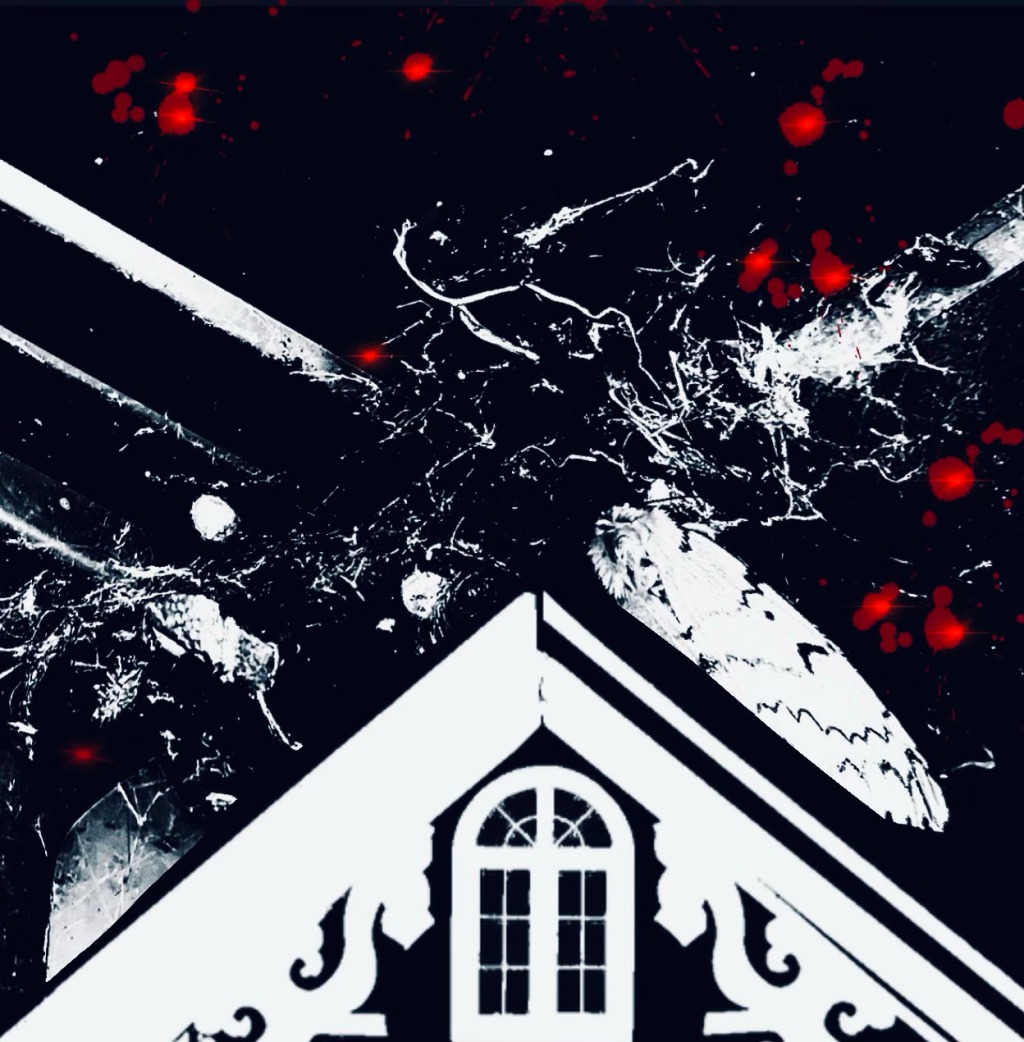Film to Fiction
By Wil Magness
My partner and I finished our fifth short film in 2018—a dystopian sci-fi story, called The Manual, about the last kid on earth raised by an overly-religious robot. The film performed better than anything we’d done before, playing at festivals, winning awards, and finally purchased by an online platform called Dust where it was watched by more than half a million people.
Production companies out of L.A. called and asked what our ‘next thing’ was.
For the last three years we’d hardly had time to work on this film. We had day jobs and young kids. When exactly were we supposed to be working on our ‘next thing’? I’m still not sure. But how many of those who ‘make it’ are simply the people who have their next thing ready to go when it’s asked for?
Two years later, in March of 2020, our fourth feature screenplay was complete. It took over one hundred drafts. During that time I lost most of my hair and our oldest child started writing stories of his own. Three-panel comics, mostly. One of them featured a man standing on the bank of a pond of corrosive acid. He says, “Why is this acid pond here?” In the next panel he says, “I think I’ll take a dip.” The final panel shows him disintegrating in the pond and screaming.
Yes, I remember thinking. This is my kid.
We created a budget for the film. Built out a production schedule, secured our Cinematographer and Production Designer, and began the process of calling in the many, many personal favors it would take to get the film off the ground.
Then COVID hit. Suddenly, pushing our friends and families to risk their health to make our dream come true didn’t seem reasonable. Many of our industry friends weren’t working. Production had dried up in Portland. Our film was effectively dead.
I reflected on the last four years of writing and revising, and how they’d essentially amounted to nothing. I became angry and disillusioned. Fed up with the collaborative nature of filmmaking in general. We’d poured our souls into this project for two years and now it seemed no one would ever see that work.
Because a screenplay is not a work of art. It’s a blueprint. A seed. And if you aren’t able to convince enough people to believe in your story, to imbue it with their time, money, and enthusiasm; then all you have left is ninety pages of courier text formatted in such a way that only a percentage of the population knows how to read it.
All I wanted at that point was to sit down, put words to a page, and have a complete story. I didn’t want to ask for help. Didn’t want a separate pitch document that explained why the story was worthy. I wanted the story to stand on its own. With twenty years of experience, four feature-length screenplays, and probably twenty-five short scripts, I knew how to tell a story. I knew how to write.
#
I wasn’t 100% wrong; some aspects do carry over well. Understanding basic story structures—beginning, middle, end; three-act; hero’s journey; beat sheets; etc.—comes in handy, especially when trying to defy those conventions. And screenwriting is a dialogue-heavy medium. I’ve written tens of thousands of words of dialogue over the years, and I’d like to think that all that practice has honed my dialogue into something better than it might otherwise be.
I learned the most, however, from those aspects that did not carry over well.
The common problem of bloated prose was not an issue for me. I’d trained myself to prune descriptions down to the bare minimum needed to communicate an idea. Like a boring version of Hemingway. I was writing seeds and blueprints when I needed to write trees and buildings. There was no fun on the line level. No joy in the text.
My first attempts to fix my ‘boring-Hemingway’ style saw my sentences turning cliché. As new writers, we want to be taken seriously, so we put words in our books that sound like words that should be in books. These are usually words we’ve read in books before, which means that, to a greater or lesser extent, they are clichés.
The Oxford English Dictionary defines cliché as, ‘A phrase or expression regarded as unoriginal or trite due to overuse.’ Many phrases or concepts become clichés because the metaphors or similes perfectly capture a specific feeling, situation, or concept. Every cloud has a silver lining. The diamond in the rough. The grit that becomes the pearl. These are good metaphors. But at the same time, we’ve heard them all so often that when we read them in a text our instinct is to skip past in search of something new and interesting.
When writing for a movie, a clichéd concept that shows up on the screen is always a huge problem. But while writing ‘as cold as ice’ in a scene description may not be good writing, it’s unlikely the cliché will make it all the way to the screen. But writing those same words down in prose is committing probably the only concrete writing sin that exists: being boring.
I didn’t quite understand the insidious nature of cliché until my critique partner pointed out examples of it in the first few chapters of my second novel. I’ve thought a lot about it since, and I have a theory about why clichés are so boring: Our brains have evolved over hundreds of thousands of years to filter out the irrelevance around us. Anything routine and boring can safely be ignored in favor of the new, exciting, and dangerous. This was a big part of staying alive back when we were hunting and gathering. Hard to spot a saber-toothed tiger when all you can see are millions of leaves and trunks and vines.
Even now, we could never exist in this world without blocking most of it out. Just think of all the wavelengths of light and vibration that constantly bombard us. For a demonstration, sit alone in your living room and try to pay attention to everything going on. Try to track all of the light reflecting between objects and your eyes, listen to every hum of your appliances, focus on all the motes of dust floating in the air. We are surrounded by clichéd vibrations that our brains subconsciously filter out to allow us to live.
After recognizing this, I realized that clichés are almost always the first thing to come to me when writing. It takes effort to recognize them, and even more effort to excavate the stronger language needed to make for good writing. What is it about that particular cliché that works so perfectly? We can start there, then come up with our own interesting take. If nothing else interesting comes, then take a step back just say what you mean to say. Plain language will always work better than a perfect cliché. And maybe in your next draft, or while you’re trying to fall asleep, or while you’re riding the bus to work, the perfect language will come to you.
#
In film, you have at your disposal two senses: sight and sound. On the written page of the screenplay, every other sensation must be implied through sight and sound.
For example, the sentence: ‘She steps through the threshold and an acrid chemical waft stings her eyes—melted plastic and sulfur.’ would look something like this in a screenplay:
She steps through the threshold and her nose crinkles.
CHENOA
You guys smell melted plastic?
To convey smell, touch, and taste, a screenwriter must filter these concepts through sight and sound. But when writing a novel or a short story, that filtering has a distancing effect on the reader. I am constantly trying to get closer to a visceral and immersive experience, so I had to learn how to a) stop filtering, and b) remind myself that these other senses are available to explore.
Now, this isn’t to say that a story written without all five senses is a bad thing. In fact, I can imagine compelling reasons to write such a story. But it’s a decision that should be made consciously, and not from a place of ignorance.
The next epiphany came when a beta reader accused me of writing a third-person story in first-person. As a filmmaker, I avoided voiceover. I considered it a lazy tool. I never wrote it into my scripts, instead trying to reveal character motivations through their action and dialogue.
Not to say voice over can’t be done well; it can and has been. But I do hold that 75% of the time a story will be better without it.
However, when a writer ignores their character’s inner monologue, especially in a first-person story, something big is missing. A reader can’t see the complex inner-life that plays across the face of a trained actor. And there’s nothing like being transported inside another person’s skull, understanding their motivations as if they were our own. It’s the experience of living another life. Seeing the world from another angle. And when we neglect our character’s unique view on events, reality, and the world; our stories simply aren’t as interesting.
#
As writers of fiction, we have a wealth of options when it comes to point-of-view. We can write in super-tight first-person present-tense like Stephen Graham Jones’ Mongrels. Omniscient third-person past-tense like Frank Herbert’s Dune. A mix of third and second-person present-tense like N. K. Jemisin’s The Fifth Season. These choices all make very different stories.
For instance, if having access to your protagonist’s inner-monologue will ruin an important twist, maybe the story should be in third-person. But if your story hinges on understanding the seemingly bizarre motivations of your characters, maybe first-person will provide that special insight that makes the story work. An urgent story filled with action might work best in present tense, while a story framed with an epistolary device should probably be first-person past-tense.
There are many different creative reasons to make these choices, and the more intentional we are about our choices, the better our stories will be.
#
I set out with the intention of working alone. Writing a story from start to finish all on my own. Without depending on anyone else. The biggest thing I learned is that the very idea of the solitary tortured artist who produces a revolutionary work of art is a fantasy. Just like film, fiction craves collaboration. We need people to read our writing. We need them to tell us when it does and does not make sense. We need to hear our words spoken aloud. Hear those mistakes that pinch at our guts. We need form rejections from magazines, and agents, and publishers. Because in the absence of these things, there is no growth.
I’m convinced there’s only one solution to the problem of writing: read a lot and write a lot. Maybe that sounds like two solutions, but it isn’t. It’s the yin and the yang. The breath and the exhale. By allowing words to flow through us in this way, we reshape our prose as the landscape is reshaped by the water that flows through it.
So read with your eyes peeled for what works and what doesn’t. Write with your mind tuned to these insights. Write. Rewrite. Have others read your work and tell you what they love and what they hate. Rewrite again. It’s like boxing on an escalator. You might take a hit. You might even fall. But as long as you’re still on the escalator, you’re moving up.
AUTHOR BIO

Wil Magness lives in Portland, Oregon with his partner, their two kids, and their dog. He is a writer, creative director, and together with his wife and partner, a filmmaker. Their latest film is the sci-fi short, ‘The Manual’, which has accrued over half a million views since release. His short fiction has appeared in small press anthologies and indie literary magazines and he is currently working on his third novel.


